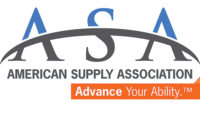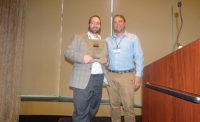How important is a company’s culture?
David Friedman, founder and CEO of High Performing Culture, told the nearly 190 attendees of the recent American Supply Association’s Emerging Leaders Spring Forum in Jersey City, New Jersey, that in a recent poll where company CEOs were asked the question “How important is company culture to the bottom line?” the average score came back at 4.8 on a 5.0 scale.
“Working on company culture is not a human-resources topic,” he said. “It’s a strategic and monetary topic and it can differentiate your company in a commoditized environment.”
Friedman presented an eight-step framework on how to hard-wire an organization in terms of strong company culture. “Driving culture is largely a teaching function,” he said. “What are you teaching people day after day?”
The eighth part of Friedman’s culture framework is the concept of “drive.” “Create accountability for your culture,” he said. “The single biggest thing you can do to demonstrate how serious you are about accountability is to fire someone.”
One of his many suggestions for driving positive change in a company’s culture is the practice of blameless problem-solving. “When you are busy blaming someone, you are not solving anything,” he said. “You are stifling innovation in a blame-filled environment.”
Friedman suggests three things matter when a problem arises in a company. “Fix it,” he said. “Nobody cares whose fault it is. After you have solved the problem, run a diagnosis to discover how you can do things better. And how do we incorporate what we learned into process improvement so you reduce the chances that it will happen again?”
Creating rituals also is high on Friedman’s priority list. “Rituals are practices that become ingrained as automatic behaviors over time,” he said. “Most human beings stink at sticking with things. Rituals help stick with things when you normally don’t have the discipline to stick with them.
“Talk about culture every day. Rituals are the platform that allows repetition to get going. Good companies have good cultures by chance. World-class companies have world-class culture by design. The difference between successful and extraordinary/world-class is a whole different ballgame.”
Attendees at the Spring Forum also heard from LIXIL Water Technology Americas President & CEO Steve Delarge, who spoke on a number of topics, including the viability of a career in the PHCP-PVF supply chain in light of the current industry labor shortage.
“Skilled-trade careers are the best-kept secret in this country,” he said. “These are lucrative careers that provide job security, flexibility and work-life balance.”
LIXIL was the sponsor of this year’s Spring Forum and hosted a tour of its nearby facility on the event’s final day.
Also in New Jersey, ASA’s Emerging Leaders Division continued its work with Operation: Rise & Conquer, a program the national association started and now is the official military program of the Adaptive Sports Center in Colorado. During this year’s Spring Forum at the Westin Jersey City Newport, the Emerging Leaders Division raised more than $6,000 in support of Operation: Rise and Conquer, bringing the association’s grand total to more than $250,000, with more than $40,000 raised over the past four years at the Spring Forum.








